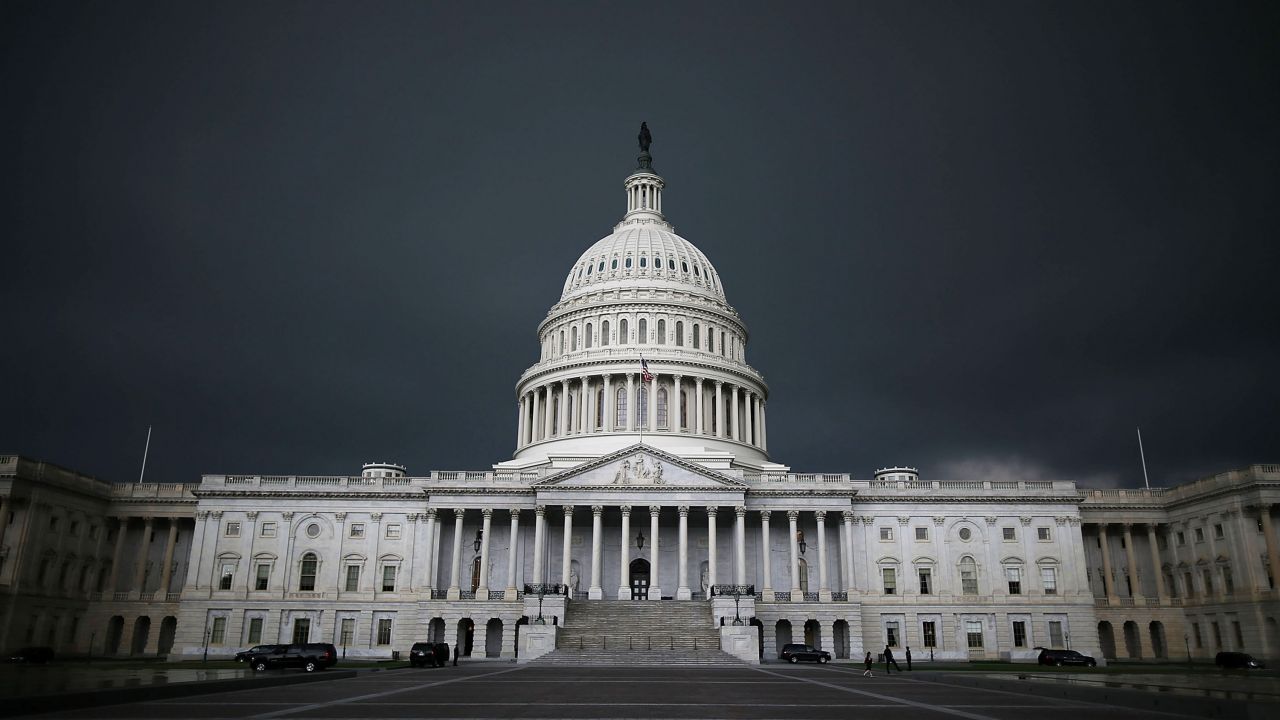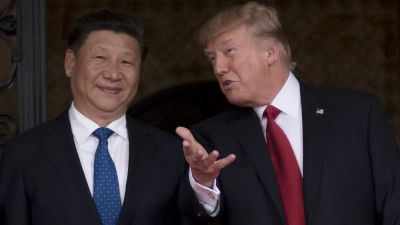
Once word of the vote to gut the Office of Congressional Ethics leaked out, phone calls, emails and social media recriminations from all points of the political spectrum began flooding the House of Representatives. (Photo by Mark Wilson/Getty Images)
This post originally appears on The American Prospect.
First Response
I think it has finally pierced the media bubble that there isn’t going to be any stimulus until after the election. Those “take the deal, Pelosi” hot takes somehow failed to move her, and nobody’s really attempted to move Mitch McConnell, based on a weird protocol that the House, having passed two large relief packages, has to pass a third before it can “put pressure” on the Senate.
McConnell has now announced a vote when the Senate returns to session next Monday on a narrow stimulus bill that appears to be the same bill he failed to pass a few weeks ago, or something even smaller. The only thing we know will be in it is a re-authorization of the Paycheck Protection Program, which had $130 billion in remaining funds when it expired. In other words, the only stimulus McConnell is committed to, nobody wanted the last time it was introduced. And by the way, the White House floated this kind of skinny bill a couple days ago, so this is a party-wide initiative.
There would be value, incidentally, in Speaker Pelosi encouraging Senate Democrats to let through that skinny bill and then immediately ask to go to conference with the Heroes Act, to negotiate the outcome with McConnell directly. That won’t get anywhere, but would more clearly show who’s holding up what.
To that point, many are confused about why economic relief, which is in the political interest of both parties before the election and in the policy interest of the entire country, cannot be agreed to, when it was in March. I have… lots of thoughts about that, as longtime Unsanitized readers well know. My assumption was that, once corporate America was taken care of, Republican lawmakers would tire of fiscal spending, and that has proven correct. If it doesn’t redistribute wealth and power upward, Senate Republicans want nothing to do with it. McConnell is surely reflecting the desires of his caucus in denying any hope of major relief. He would lose major status within the caucus if he defied those wishes, in support of a president who he believes won’t be in power very long.
This is known as the Iron Law of Institutions: “The people who control institutions care first and foremost about their power within the institution rather than the power of the institution itself.” McConnell wants to retain power personally, and is thinking past the upcoming loss of power for the party. (I’ve noted how he’s setting up for a re-run of post-Obama Republican dominance as well.)
What’s been less understood is how the Iron Law of Institutions is affecting Nancy Pelosi’s decision-making as well.
Pelosi’s appearance with Wolf Blitzer was an absolute train wreck, with her blasting him for being a GOP “apologist” when all he said over and over again was “people are hurting, can’t you come to a deal?” When you get in a fight with someone so unintelligent that he broke the record for negative dollar amounts on Celebrity Jeopardy, and you lose that badly, something is wrong with your messaging. Yet Pelosi proudly displayed the transcript on her website anyway.
What was she really doing in that interview? She was defending her committee chairs, who she has put out front and center as objecting to this and that part of the White House’s $1.8 trillion counter-offer. Writ large, your macro-economic pundit might see the objections as pretty trivial. But I guarantee you they’re important to one committee or one sub-caucus or one bloc of Democrats. For example, money for child care, which Pelosi has consistently called to light, is critical for women of color, who make up a near-majority of providers. Things like the Earned Income Tax Credit and the Child Tax Credit (which Pelosi wants increased and made useful for the pandemic tax year) are pet projects of Ways and Means Committee members. These are things that Pelosi can point to and tell House Democrats that she’s fighting for their objectives.
Underlying that is the fact that this is a purely theoretical exercise. Pelosi taking or not taking the deal will not matter as to whether stimulus reaches the American people. McConnell is the roadblock, and the mission is doomed. So the only thing Pelosi needs to protect is her status among the Democratic caucus.
So far, practically nobody inside the caucus has disagreed with her position. One of the truly terrible after-effects of the pandemic has been the dissolution of Congress as a legislative body. All lawmaking has funneled up to the Speaker; the bulk of the House has been prevented from governing. There’s something darkly comic in progressives fighting so hard to upset incumbents and gain additional members of the Squad, so they can sit around too until Pelosi tells them to vote for something.
But it’s up to the caucus to be mad about that, not me. And all indications are that they’re not mad. Pelosi’s imperiousness may have been a problem at points during the pandemic. But people have short-term memories, and on this negotiation, Pelosi is trying pretty hard to show that the objections are caucus-wide, and picking out little provisions that likely matter to key members.
The other backdrop to all of this is that Pelosi wants one last term as Speaker with a Democratic trifecta, one last chance at a burst of policymaking. She made a deal in 2018 that earned her the Speaker’s gavel in this Congress, but only for two terms. And in that second term, she needs two-thirds support of the caucus to win the Speaker’s race. It took a lot of hustle for Pelosi to secure majority support in 2018. So, in keeping with the Iron Law of Institutions, she’s tending to her caucus as well.
They aren’t interested in the president’s plan. You have a few Problem Solvers who have put out their own bill, and very few progressives (really only Ro Khanna) saying Pelosi should take what she can get. For the rest, Pelosi has been just vague enough to make it seem like she’s supporting their position. And I’m sure there’s a substantial number in the caucus who don’t really want to give Trump a political win by reaching an agreement on stimulus.
I’ve been a pretty healthy critic of Pelosi and this might seem like a defense. She bears responsibility for the lack of economic support right now. But that’s largely due to her actions in March. What she’s up against now is a brick wall in Mitch McConnell. That’s when the Iron Law of Institutions kicks in.
The calculation might be different if there was even a 1 percent chance that the Senate would pass something meaningful. Since there isn’t, Pelosi is reverting back to the Iron Law of Institutions. And that points in the direction of not taking the deal. Because there’s no deal to take, and because inter-caucus dynamics dictate holding out. Your problem with Pelosi, if you have one, is a problem with House Democrats.
Days Without a Bailout Oversight Chair
202.
Today I Learned
- The IMF is blinking red at the prospect of financial stress from rising bankruptcies. (Wall Street Journal)
- There’s a winner-take-all “stay at home” economy now. (Axios)
- Hedge fund short sellers are actually betting on that stay at home economy faltering, should things return to normal. (Financial Times)
- Eli Lilly’s monoclonal antibody trial is now on hold, too. (CNBC)
- How the pandemic is damaging rural America. (Jacobin)
- High demand has made used cars more expensive. (Vox)
- Essential workers become a turnout machine for the election. (HuffPost)
- Podcast on how COVID amplified the anti-vaccine movement. (Washington Post)




